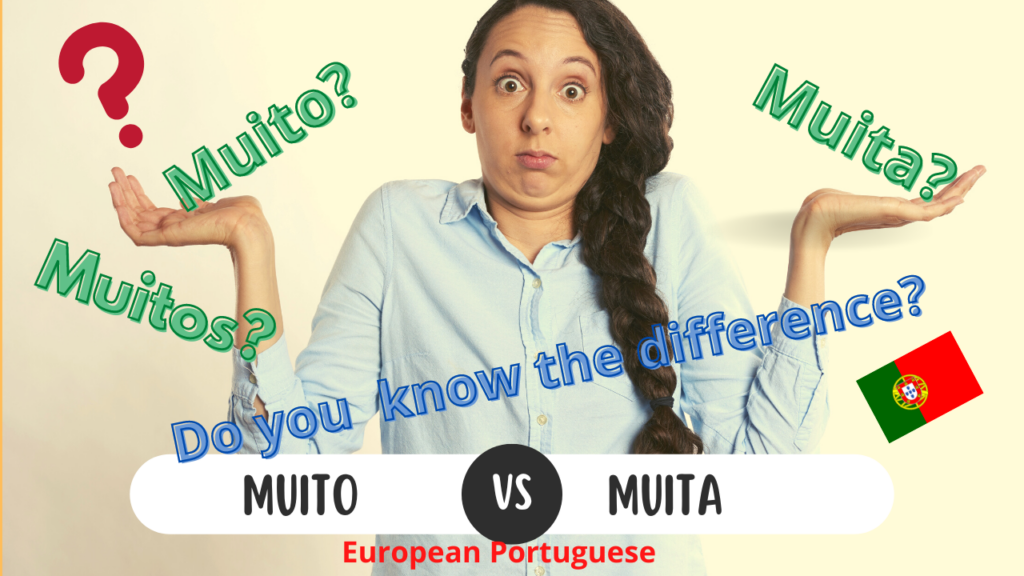Do you know when to use muita?

As a Portuguese student, the first time you possibly came across the word ‘muito’ was when you were learning how to greet people in Portuguese. Like this:
Como está? – How are you?
Estou muito bem, obrigada – I am very well, thank you.
In the above case we can see that the Portuguese word ‘muito’ means ‘very’ in English.
Simple right?
But then one day you are chatting to your neighbor, using sign language and a mix of words to make yourself understood and you hear them using this word in a different way, when they are telling you a little about themselves…
Tenho muitos porcos…
Aquela árvore é muita alta!*
Tenho muitas netas…etc..
Then you ask yourself, ‘So why is the word changing from muito to muita, muitas and muitos?’ The answer is simple; muito is an adjective, a pronoun and an adverb!
“What? What the hell is an ad-thingy?”
Yes, I get it, all this talk about Portuguese grammar can be too much to take in sometimes – so let me put it in simpler terms.
Muito = very
Adverb – invariable.
Invariable just means it never changes and it is used to describe a degree of quality or intensity.
e.g.
A máquina de café é muito boa – the coffee machine is very good
Ela é muito simpática – she is very friendly
As malas são muito pesadas – the cases are very heavy
Os sapatos são muito bons – the shoes are very good
Choveu muito! – It rained a lot!
O bebé chorou muito – the baby cried a lot.
When we are talking about quality we use the invariable, muito – very. Note: ‘muito,’ does not change gender and number. Now let’s take a look at the others…
Muito / muita / muitos / muitas = a lot of / many
quantifier – variable
Variable means it changes. It is always used next to the noun. The word quantifier can remind us that here we are dealing with quantity; things we can count.
e.g.
Muitos porcos – many / a lot of pigs
Muitas netas – many/ a lot of grandchildren
Even with collective nouns it changes gender to match the noun.
Muita gente – many a lot of people
Muito dinheiro – a lot of money
In short, if we are describing a quality we use the invariable, if we are talking about quantity, we use the variable form. However there are some tricky ones – there always are…
Tenho muita pressa – I am in a hurry
Há muito tempo – a long time ago
Tempo and pressa are both nouns.
Don’t worry if you don’t catch on straight away even some Portuguese native speakers get confused as to what the differences are. Kind of in the same way that English native speakers get confused with; there, their and they’re.
Like our hypothetical neighbor for example:
“Aquela árvore é muita alta!”
I used to hear this a lot when I was learning and it is something that can confuse the learner greatly! The correct way to say this would be:
Aquela árvore é muito alta – that tree is very tall. (quality)
Using the invariable.
If you have any questions please comment below.
Learning a language can seem like a daunting task and the secret is to do a little every day. The Portuguese in Six Weeks courses are designed to do just that! Easing you into the language and grammar, painlessly
Take a look at what people are saying about them.
